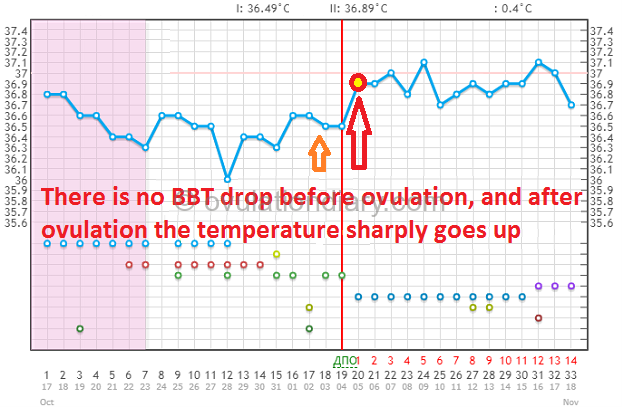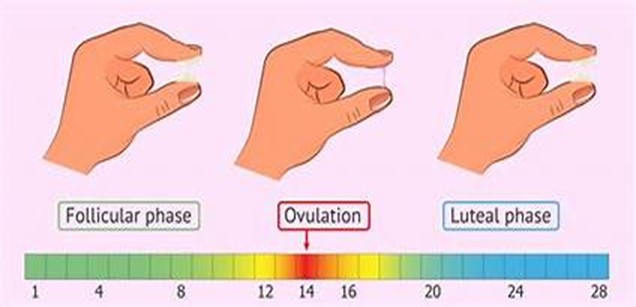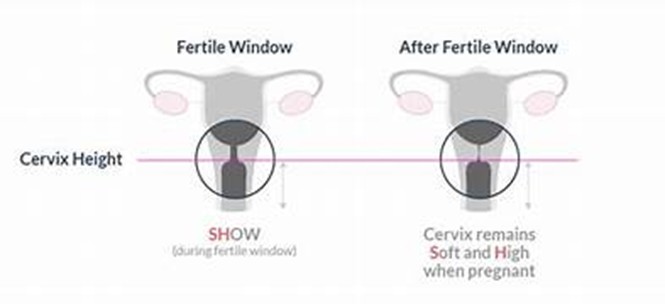5 Signs That You Are Fertile – Understanding Your Body’s Natural Signals

Fertility is a key part of reproductive health, and knowing when you are most fertile can significantly improve your chances of conception. Your body provides several natural signs indicating when you are in your most fertile window. Whether you are trying to conceive or just want to understand your cycle better, recognizing these signs can be beneficial.
At Lakshmi Fertility Center, we guide couples on their journey to parenthood with expert care and knowledge. Here are five key signs that indicate you are fertile:
1. A Rise in Basal Body Temperature (BBT)

Your basal body temperature (BBT) is your body’s lowest resting temperature, usually measured in the morning before getting out of bed. Right after ovulation, the hormone progesterone causes a slight rise in BBT—typically by 0.5 to 1°F.
Tracking your BBT over a few months can help identify patterns and determine your most fertile days. A sudden temperature increase suggests that ovulation has occurred, making this method a useful tool for couples trying to conceive.
How to Track BBT:
- Use a digital basal thermometer and take your temperature every morning before getting out of bed.
- Record the readings on a chart or use a fertility tracking app.
- Look for a sustained temperature increase, which signals ovulation has passed.
2. Mid-Cycle Cramps (Mittelschmerz)
Many women experience a mild discomfort or sharp pain in the lower abdomen around ovulation. This ovulation pain, called Mittelschmerz, is caused by the release of an egg from the ovary.

Symptoms of Ovulation Pain:
- Mild to moderate pain on one side of the lower abdomen.
- A sudden sharp twinge or dull ache that lasts from a few minutes to a couple of days.
- Occasionally accompanied by light spotting.
Mittelschmerz is a natural indication of ovulation, helping women recognize their fertile window.
3. Cervical Mucus Becomes Thin and Stretchy

Cervical mucus plays a vital role in fertility. Throughout the menstrual cycle, its consistency changes due to hormone fluctuations. As ovulation nears, estrogen increases, making cervical mucus clear, slippery, and stretchy—similar to raw egg whites.
Why is This Important?
- This fertile mucus helps sperm travel more easily to the egg.
- It creates a sperm-friendly environment, increasing their lifespan inside the reproductive tract.
- The more slippery and stretchy the mucus, the higher the chances of conception.
Tracking cervical mucus changes can be an effective way to determine ovulation.
4. Heightened Sense of Smell
A heightened sense of smell around ovulation is another subtle but common fertility sign. During your fertile window, your body becomes more sensitive to scents, particularly male pheromones.

Why Does This Happen?
- Hormonal changes during ovulation enhance your sense of smell.
- This can lead to an increased attraction to a partner’s natural scent.
- Some women may also notice stronger reactions to food odors or perfumes.
While this is not the most obvious fertility sign, it is a natural change that some women experience.
5. Changes in Cervix Position and Texture

The cervix, which connects the vagina to the uterus, undergoes significant changes during the menstrual cycle. Around ovulation, it becomes softer, higher, and more open, creating an ideal passage for sperm to enter the uterus.
How to Check Cervical Changes:
- Wash your hands thoroughly before checking.
- Gently insert a clean finger into the vagina and feel for the cervix.
- During the fertile window, the cervix feels soft, high, open, and wet (often referred to as SHOW).
- After ovulation, the cervix becomes firmer, lower, and closed.
Checking cervical changes takes practice but can be a helpful way to recognize your fertile period.
Tracking Your Fertility for Better Chances of Conception
Recognizing these five signs can help you understand your fertility cycle and increase your chances of pregnancy. Some women also use ovulation predictor kits (OPKs) to confirm when ovulation is occurring.
However, if you have been trying to conceive for more than a year (or six months if you are over 35) without success, consulting a fertility specialist is recommended.
At Lakshmi Fertility Center, we offer expert guidance, fertility treatments, and advanced reproductive technologies to help couples achieve their dream of parenthood. If you need personalized fertility advice or assistance, book a consultation with our specialists today.
